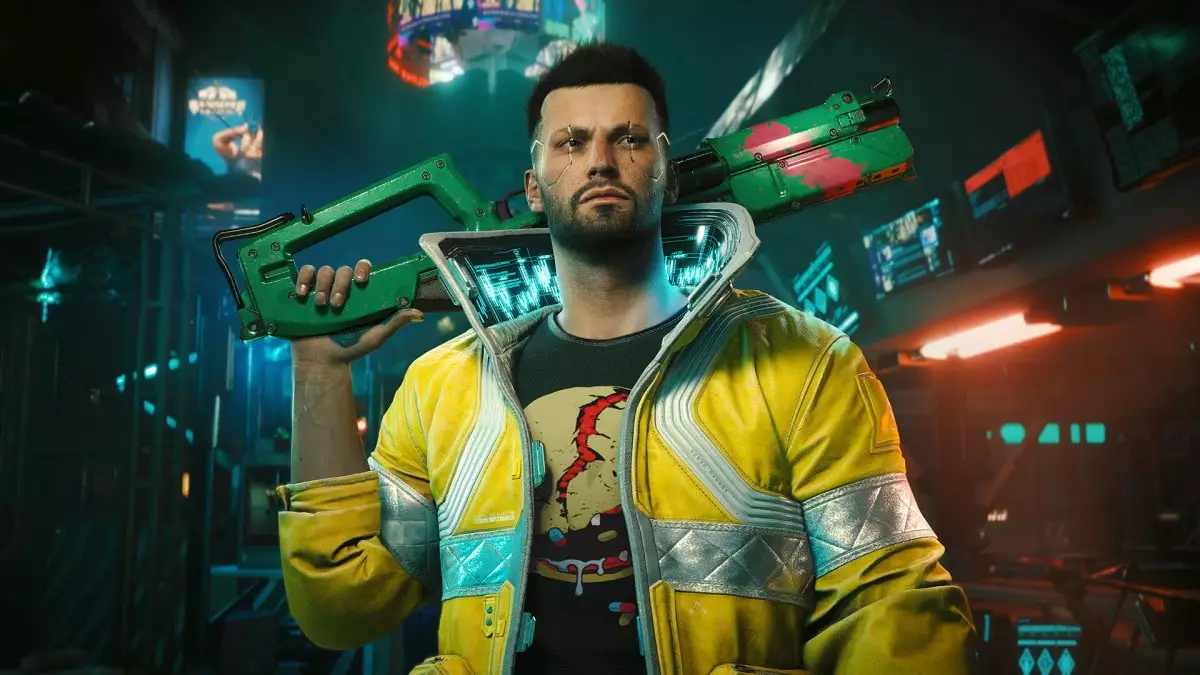When news broke that CD Projekt had officially transitioned its long-awaited Cyberpunk 2077 sequel into pre-production, it sent ripples of excitement through the gaming community. Dubbed Cyberpunk 2, this next installment marks a significant step forward, or perhaps a leap, in an ambitious franchise that has endured its fair share of ups and downs. The transition from “Project Orion” to its new moniker indicates more than just a name change; it symbolizes the company’s renewed commitment to not only expanding the Cyberpunk universe but also addressing the missteps that plagued its predecessor.
Many gamers had high hopes for Cyberpunk 2077, only to have those dreams marred by a series of bugs and performance issues upon its release. Now, as CD Projekt Red eyes what comes next, the anticipation for Cyberpunk 2 elicits both excitement and cautious skepticism. Having learned from its past, the studio has promised a more thoughtful development process. It’s reassuring to see that they are willing to move at a pace that prioritizes quality over quantity, although the long wait may deepen anxieties among loyal fans.
The Growing Workforce and Revenue Insights
In their first-quarter earnings report for 2025, CD Projekt revealed another facet of their strategy; boosting the development team to 96 from an initial 84. This may seem like a minor increase, but it reflects a commitment to bolstering resources for new ideas and intricate storytelling. However, one must ask: Is this expansion a genuine effort to cultivate creativity, or merely a corporate move to meet shareholder expectations? In an industry where crunch time is often a bitter reality, the pressure to produce results can easily quench innovation.
Moreover, the financial figures reported, such as the 10 million copies sold for the Phantom Liberty expansion, add an interesting layer to the narrative. It’s a testament to how there is still robust interest in the Cyberpunk brand, despite its shaky inception. While financial success is crucial for sustainability, one wonders how CD Projekt can balance commercial success with artistic integrity. Are profits becoming the primary objective, overshadowing the potential for groundbreaking storytelling and user experience?
A New City and Future Horizons
Among the most tantalizing hints about Cyberpunk 2 is the promise of an additional city, described as “Chicago gone wrong” by Cyberpunk creator Mike Pondsmith. This information evokes images of a sprawling and dystopian landscape where both scene-setting and narrative can fully explore the themes of corporate greed and societal decline inherent in cyberpunk lore. However, one can’t help but feel a twinge of concern. Is a second city in addition to Night City more than a gimmick? Will it enhance the gameplay, or is it simply an attempt to appease a fanbase irked by the lack of content in the original title?
Pondsmith’s involvement adds a level of credibility and excitement. His insights could indeed shape a richer, more immersive narrative experience. However, I find myself haunted by an unsettling thought: Can CD Projekt Red truly capitalize on this opportunity to deliver an artistic masterpiece, or will they default to the pitfalls of rushed output that marred the earlier installment?
Industry Implications and Cultural Resonance
The game industry at large watches closely as CD Projekt attempts to reclaim its reputation. The success or failure of Cyberpunk 2 could set a precedent, influencing how studios approach game development in an era where investors often demand rapid returns. The stakes are incredibly high, not just for CD Projekt, but for an entire gaming culture that has seen both innovation and mediocrity over the past decade.
As a center-wing liberal, I find myself grappling with the question of what makes for responsible game development. Should studios be purely profit-driven, or do they have a moral obligation to produce engaging content that clicks with their audience on a profound level? Cyberpunk 2 holds the potential to redefine not just the franchise, but the entire landscape of narrative-driven gaming—if only it dares to take artistic risks rather than simply seeking approval from an ever-watchful market.
The question of whether this sequel will honor or strangle the roots of its predecessors is one that excites and terrifies in equal measure. The gaming community undeniably craves innovation, yet the path forward remains fraught with uncertainty.


Leave a Reply